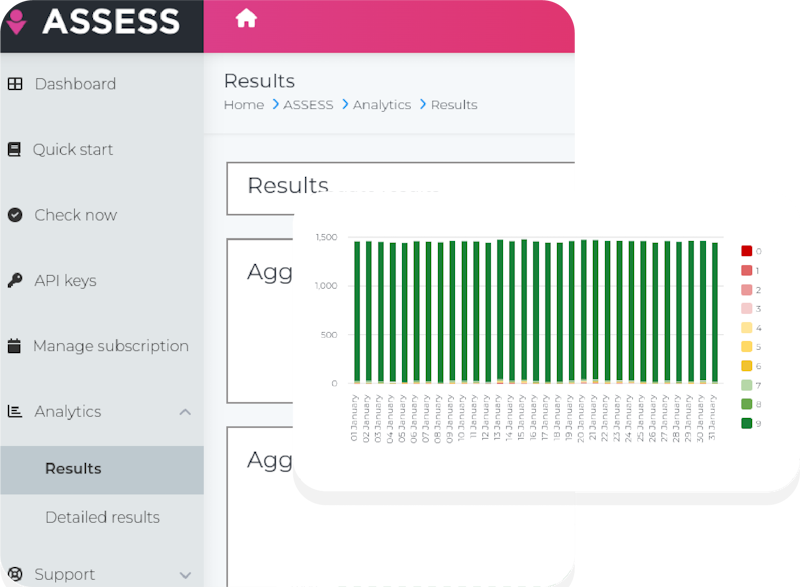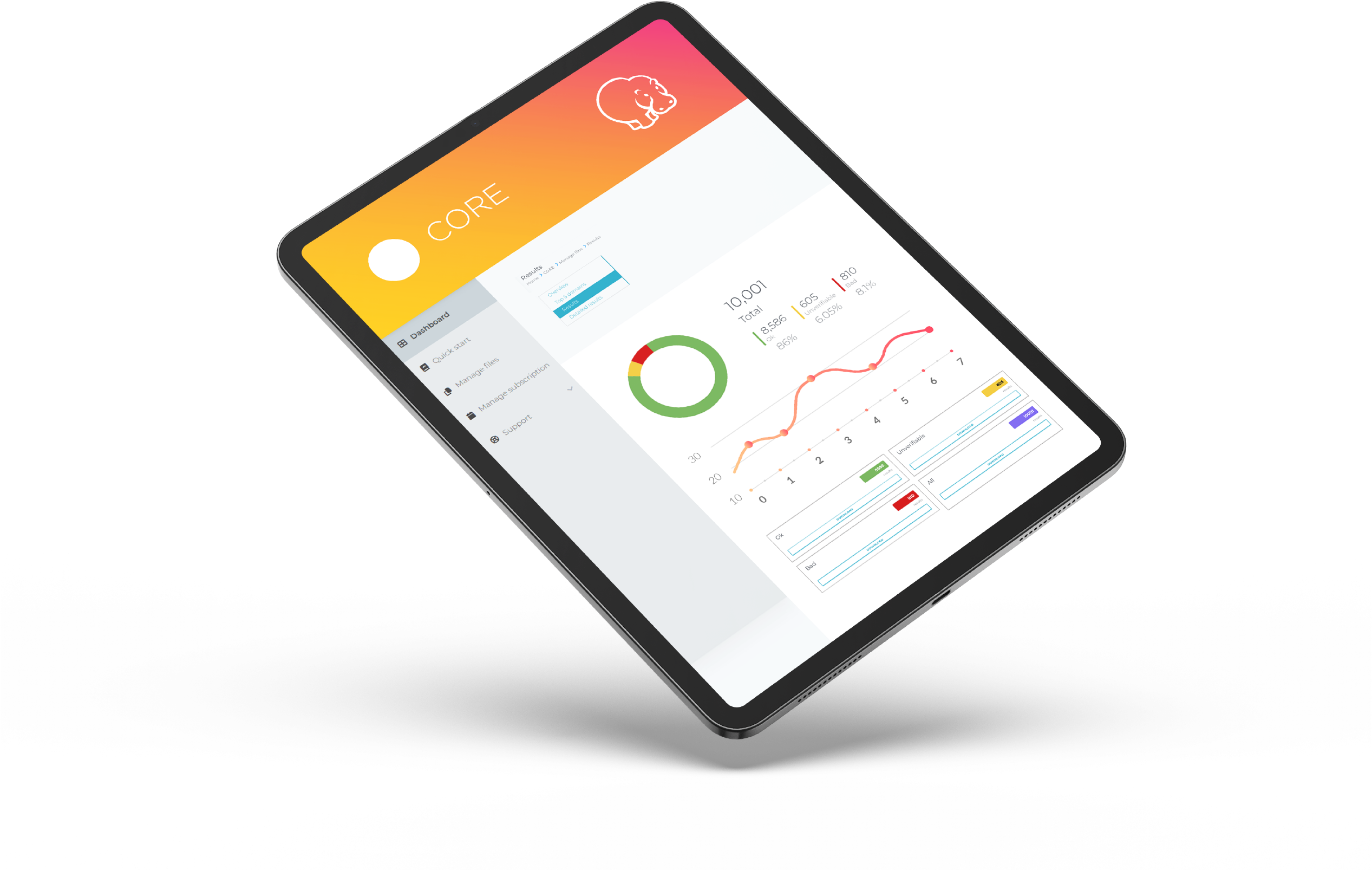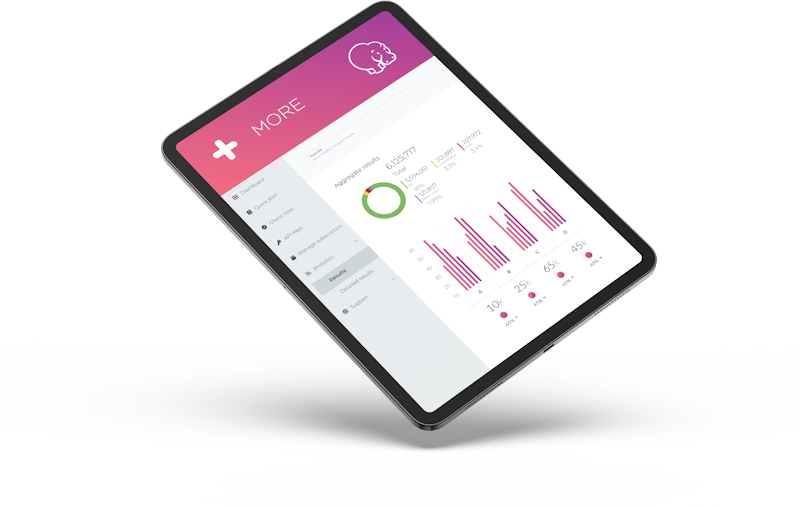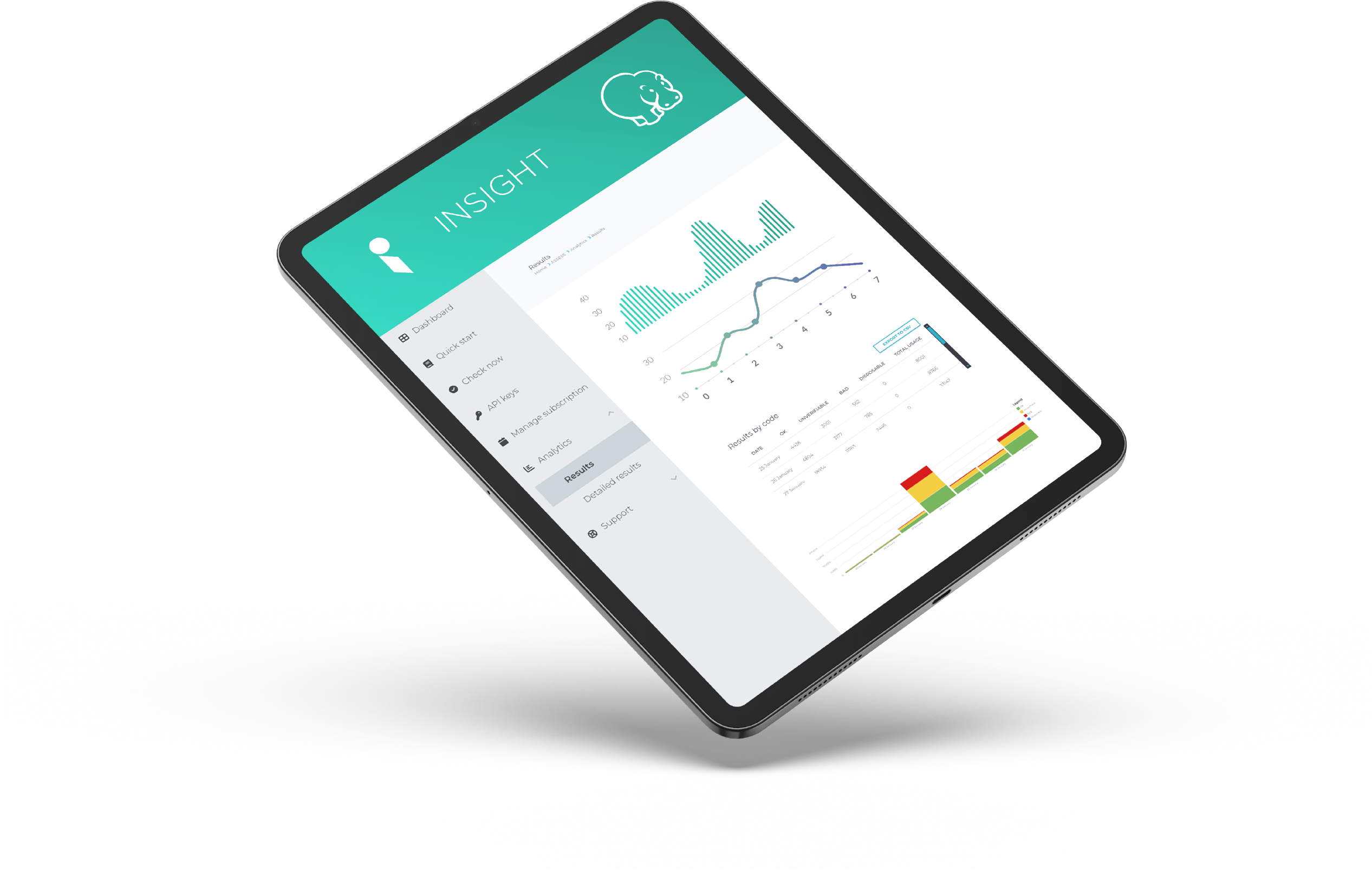ASSESS Features
DNS record check
MX record check
SMTP check
Infrastructure checks
Gibberish check
Profanity check
Role-based emails
Detect subaddressing
Syntax checking
Gender check
Detect disposable email addresses
Greylist detection
Catch-all mail server detection
Detect anti-spam system
Infrastructure identification (enhanced)
Mail server location tracking
Domain check
Dark web link checks
Subdomain check
Domain reputation check
Domain age analysis
Domain owner lookup
Hippo risk score
Consumer or business scoring
Tor exit node check
Blocklist check
Location information
Data centre identification
Connection type detection
Comprehensive dashboard
Use ASSESS to detect and prevent fraud
- Block Fraudulent Sign-Ups – Instantly identify high-risk email addresses linked to scams, bots, and suspicious activity before they enter your system.
- Reduce Chargebacks & Fake Transactions – Detect disposable, temporary, and high-risk emails often associated with fraudulent purchases.
- Strengthen Account Security – Prevent fraudsters from using fake or compromised emails to create accounts and exploit your platform.
- Enhance Trust & Compliance – Ensure your user base consists of real, verifiable email addresses to maintain platform integrity and regulatory compliance.
- Automate Risk-Based Decisions – Leverage real-time risk scoring to streamline fraud prevention workflows and reduce manual reviews.

Ready to improve your email deliverability?

ASSESS Pricing

Subscription
- Regular use
- Various levels up to 2.5 million emails
- Monthly, quarterly or annual subscription discounts
- Pay by credit or debit card
- Upgrade or downgrade subscription at any time
For Enterprise solutions with agreed contract terms and duration.
For larger lists or regular usage, consider our subscription plans for better value.
CORE - Clean and validate your email lists with confidence
CORE is a powerful, easy-to-use bulk email verification service that helps you clean and validate your email lists with speed and accuracy. Whether you're preparing a marketing campaign, improving data quality, or reducing bounce rates, CORE ensures your emails reach real inboxes.
- • Upload and verify large email lists quickly and securely
- • Reduce bounce rates and improve email deliverability
- • Identify invalid, risky, or duplicate email addresses before you send

MORE - Fast, simple, and secure real-time email verification
MORE provides a fast, simple, and secure way to validate email addresses in real time, helping you prevent fake sign-ups, reduce fraud, and maintain high-quality data. Seamlessly integrated into your workflows, MORE ensures only genuine, active email addresses enter your systems.
- • Instantly verify emails at the point of entry with our real-time API
- • Improve data quality and reduce fraudulent or invalid sign-ups
- • Ensure seamless integration with flexible API options

INSIGHT - Email intelligence for smarter decision-making
INSIGHT goes beyond standard verification, providing detailed email intelligence to help you assess risk, detect fraud, and make informed business decisions. With powerful real-time analysis, INSIGHT helps you understand the true quality of an email address before you engage.
- • Gain advanced insights beyond basic email validation
- • Access enriched data to support segmentation, scoring, and smarter engagement strategies
- • Identify email address types such as role-based, free, or business in real time


